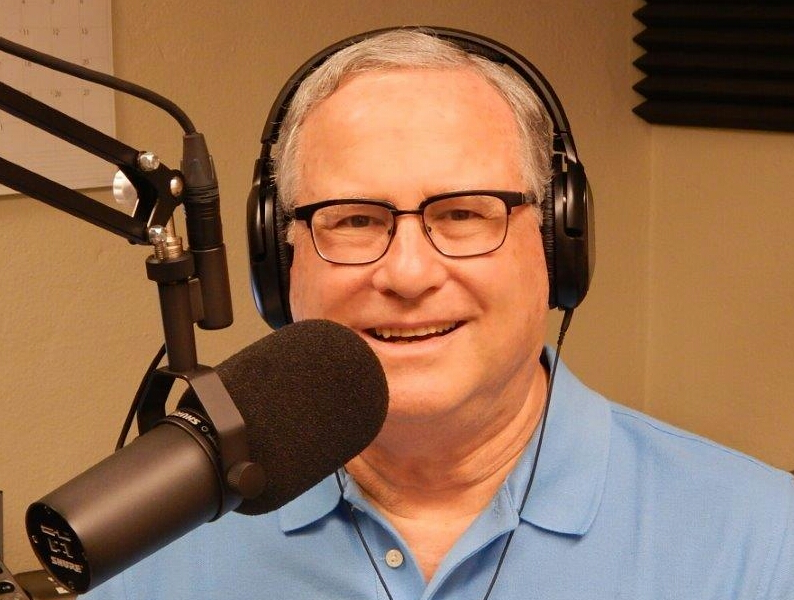By Deborah Moon, October 2014
More than twice as many women report suffering from insomnia as men, says the author of Sleep Soundly Every Night; Feel Fantastic Every Day.
“Women have a high incidence of restless leg syndrome, PTSD and anxiety disorders,” all of which contribute to insomnia, says Robert S. Rosenberg, DO, FCCP, medical director of Sleep Disorders Center of Prescott Valley. “Premenstrual syndrome also keeps some women awake. … And during menopause they have significant problems with sleep due to night sweats. … After menopause, women tend to develop sleep apnea at the same rate as men do at an earlier age.”
Though his book includes a section on insomnia and women, Dr. Rosenberg notes that “further factors contributing to persistent insomnia are similar to those in men.” Hence, the majority of his recently released book discusses causes and treatment options for both men and women.
“My book is eclectic,” he says. “It’s one of the first for laypeople that covers a number of problems related to sleep such as sleepwalking and eating in your sleep. The only way to get help is to seek it.”
Dr. Rosenberg is a sleep medicine expert for EveryDayHealth.com and is a frequent lecturer to the public and the medical community. He appears on TV, radio and in print discussing sleep-related issues, including The Ricki Lake Show, Woman’s World, Oprah Magazine, Prevention, Women’s Health and Ladies’ Home Journal.
In a recent telephone interview, he shared some advice specifically for women.
For women caring for a newborn, shared responsibility for getting up with a crying infant is paramount, he says. Since infants can’t be expected to have a normal sleep/wake cycle for about six months, parents can expect to feel anxious and fatigued during that time. He says studies show that young adults who are awakened three to four times a night function at about the same level as someone with only four hours of sleep. Short daytime naps can improve alertness for two to four hours, he notes.
For menopausal women, he says a simple solution to night sweats is to lower the bedroom temperature. “Without estrogen, the body overreacts to the slightest change in temperature.” If a cooler bedroom doesn’t help, he says a low-dose estrogen can be considered to get women through that transition. Some women find relief from night sweats with the herbal remedy black cohosh.
“Some antidepressants stop hot flashes,” Dr. Rosenberg adds. “The sleeping pill Lunesta also helps with hot flashes.
”Many women develop restless leg syndrome, which is a major cause of inability to fall and stay asleep. RLS has numerous causes, many of which respond to medical treatment. But Dr. Rosenberg says moderate exercise and good sleep hygiene can alleviate some of the symptoms.
Good sleep hygiene is beneficial for both women and men. He says his top recommendation for anyone experiencing sleep issues is to turn off your electronics 90 minutes before bedtime.
“Blue light (which emanates from TVs and computer screens) is a problem,” he says, explaining that blue light destroys melatonin, which helps us fall asleep. “Electronics in the bedroom are a real hindrance to being able to sleep.”
Dr. Rosenberg’s expertise in sleep can be traced to one of two shortages he found when he moved to Lake Havasu around 1990.In Phoenix, Dr. Rosenberg was a pulmonologist and a charter member of Temple Kol Ami. When he moved to Lake Havasu to join a large medical practice, he found there were no synagogues in town and no sleep clinic within 300 miles. To alleviate the Jewish absence, he became a founding member of Temple Beth Shalom in Lake Havasu and was instrumental in building the synagogue.
He also began to nip away at the lack of sleep resources. As a lung specialist, “I was doing the sleep apnea part,” he says. “And I started dealing with other sleep issues in this remote area. I got board certified in sleep medicine and found sleep medicine fascinating.” As a pulmonologist, he found lung cancer and COPD were often controllable but not curable. But, he says, “With sleep, I can really make a difference.” For instance, he says many kids have been diagnosed with ADHD, but the symptoms go away if a sleep disorder is treated.
So for more than 20 years, Dr. Rosenberg has concentrated professionally on sleep. Jewishly he has remained involved, though he didn’t have to get in on the ground floor when he moved to Prescott. He and his wife Christine joined Temple B’rith Shalom, which began in Prescott in 1978.
Dr. Rosenberg says the two parts of his life mesh well. “Sleep is very important to memory,” he says, noting learning and memory are very important in Judaism. Additionally, he says, Judaism has a very holistic view of physical, emotional and spiritual health, all of which require sleep.
– See more at: https://azjewishlife.com/2014/oct/features/women%E2%80%99s-health-sleep-well-your-health#sthash.F7NmrecX.dpuf





